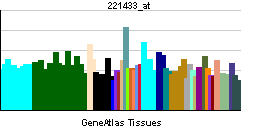South Africa Reports H5N1 Bird Flu Outbreak on Poultry Farms

PARIS - South Africa has confirmed the presence of the highly pathogenic H5N1 strain of avian influenza, commonly known as bird flu, on two poultry farms within its borders, as reported by the World Organisation for Animal Health (WOAH) on July 2, 2025. This outbreak marks the first reported case in the nation since September 2024, raising significant concerns within the poultry industry, which has been recovering from a severe outbreak in 2023 that resulted in the loss of approximately one-third of the country's chicken flock.
According to WOAH, the recent cases resulted in the deaths of 1,150 birds across the affected farms. Specifically, 300 birds died on a farm located in Tswaing, North West province, while 850 birds perished on a farm in Mkhondo, Mpumalanga province. The South African Department of Agriculture, Forestry and Fisheries (DAFF) has been notified of these incidents, prompting immediate measures to control the situation.
The poultry sector in South Africa has been on high alert following previous outbreaks, particularly given the criticism surrounding the government's vaccination rollout program aimed at curbing the spread of avian influenza. As stated by Dr. James McDonald, an avian disease specialist at the University of Pretoria, "The resurgence of H5N1 is alarming, especially since the industry had only recently started to stabilize. The effectiveness of vaccination strategies must be revisited to prevent further losses."
Globally, bird flu outbreaks have become increasingly common, with significant impacts reported in various countries. For instance, the United States has faced similar challenges, and Brazil, a leading poultry exporter, reported its first known case on a commercial farm earlier this year. The World Health Organization (WHO) has issued warnings about the potential for avian influenza strains to mutate, posing risks not just to poultry but also to human health.
The economic implications of the current outbreak in South Africa are considerable. According to a report by the South African Poultry Association (SAPA), the poultry industry contributes around R50 billion (approximately $3 billion) annually to the national economy. The previous outbreak in 2023 had already strained the sector, leading to increased prices for poultry products and a decline in consumer confidence.
In response to the latest outbreak, the South African government has reiterated its commitment to monitoring and controlling the spread of the virus. Minister of Agriculture, Thoko Didiza, stated, "We are taking immediate actions to contain the outbreak and will work closely with farmers to ensure biosecurity measures are enforced rigorously."
Experts emphasize the importance of international cooperation to address the challenges posed by bird flu. The Food and Agriculture Organization (FAO) has been active in supporting countries to enhance their capabilities in disease surveillance and response. As highlighted by Dr. Maria Neira, Director of Public Health and Environment at WHO, "The interconnected nature of our world means that diseases like H5N1 can spread rapidly. It is crucial that countries share information and resources to combat these threats effectively."
Looking ahead, the future of South Africa's poultry industry will depend heavily on the success of containment efforts and the efficacy of vaccination programs. Continuous monitoring and research into avian influenza are essential to mitigate the risks associated with this persistent threat. As the country grapples with the current situation, stakeholders from government, academia, and the poultry industry must collaborate to protect both animal and public health.
Advertisement
Tags
Advertisement





